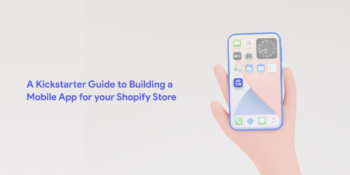Users’ data is gathered and processed by countless entities all around the world. Most of us are not surprised by this.
This information is being recorded someplace each time you conduct an internet search, sign up for a newsletter, make an online purchase, or share a photo on social media (likely, even, several somewheres). Data security and privacy are always in the news, particularly in the wake of a number of significant data breaches as well as instances of corporate abuse and exposure.
The issue has caused some understandable worry by calling into question some of the tools and services we use on a daily basis and count on to protect our privacy. All businesses are being forced to reconsider their approach to data privacy and security as a result of the ensuing uptick in privacy regulations.
However, our user behavior hasn’t really changed as a result of this.
We might be a little bit more selective when selecting app permissions or when posting things online, but that’s about it. None of the businesses mentioned in certain stories have revealed a sizable decrease in daily active users.
We want our privacy to be protected as consumers. We trust businesses with our information and count on them to take the utmost precautions to protect it. Particularly considering the lack of genuine control we have over what happens to our data.
The future is also a personal matter
We often discuss how important it is to connect the dots between different channels, platforms, and devices in order to view the user as a full person. Enhancing the user experience is what builds brand strength and customer loyalty.
Professionals in marketing put a lot of effort into developing messaging that can be tailored in order to target the right audience with the right message at the right time.
However, there is a very thin line between user experience and privacy, and when this line is tripped up carelessly, the user may feel uncomfortable or even creeped out by the outcome. Brands frequently strive to strike the ideal balance between feeling overly familiar, like a stalker, and familiar enough to feel like an old friend.
Appmaker integration with Appsflyer
The tools provided by AppsFlyer are intended to assist advertisers in achieving this familiarity; data processing is used to build user journeys that promote user acquisition, remarketing, and retention. Marketing professionals can provide better user experiences, hone their targeted audiences, and increase the number of engaged customers by gaining a complete picture of how people interact with the brand across a variety of devices, channels, and platforms.
To support expected app growth, safeguard client privacy, and provide top-notch mobile experiences, appmakers turn to the AppsFlyer cloud.
When your Shopify app is linked with Appsflyer’s open platform, you’ll have access to the measurement, analytics, engagement, and fraud protection tools you need to find the answers to all of your questions and make the best decisions for your customers and business.









No Comments
Leave a comment Cancel